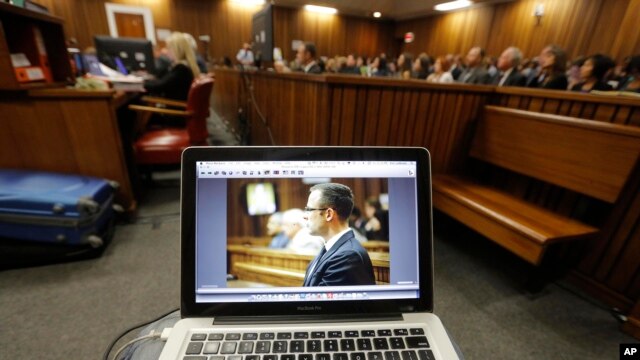General
Source: Voice Of America
Pretoria — Judge Thokozile Masipa is a central figure in Oscar Pistorius' murder trial. She talks softly, but carries a big stick.
Masipa has made a name for herself for being only the second black woman to ascend to the bench, and for then using the position to fight South Africa's scourge of domestic violence.
When South Africa's prosecuting authority announced who would preside over the athlete's trial, local newspapers were quick to note the intriguing plot twist created by this addition to the cast of characters.
"One always hopes to think that the choice of judge won't make any difference to the trial," said constitutional scholar Pierre de Vos, who teaches law at the University of Cape Town. "But I think the realities are that certain judges will, you know, if you're the defense for example... you'll be happier if a certain judge is appointed to hear the trial than others. I would suspect that Mr. Pistorius and his lawyers are not overjoyed by the choice of judge."
Masipa is black and a woman. The prosecuting authority was quick to note that she was not chosen to lead this case for those qualities, but because she is a competent and respected judge who happened to come up on the court roster.
More relevant to this trial, she also has a record of coming down hard on cases in which men are accused of abusing or killing women.
Masipa is now also at the center of a case that has broken legal barriers by being the first South African criminal trial to be broadcast live.
However, being on the forefront is not new for Masipa. She was on the leading edge of a wave of judges and magistrates who transformed South Africa's judiciary from a nearly all-white boys club in 1994 -- when 160 of 165 judges were white men -- to a much more representative roster today.
She joined the bench in 1998, only the second black woman to do so. Last year, the Department of Justice said the judiciary is now dominated by black male judges, 100, compared to 71 white men. Forty-nine black women are seated judges, along with 21 white women.
Journalists are not allowed to approach Masipa or her two assessors during this trial. Together, the three will decide whether to believe Pistorius' claim that he mistook his girlfriend for an intruder when he shot her dead through a locked bathroom door or whether Reeva Steenkamp's shooting death was murder.
Challenging journey
Those who have met Masipa describe her as smart, humble and hardworking.
Like Pistorius, she grew up with serious obstacles in her path to success. But while Pistorius' tale is one of triumph over disability -- he was born without fibula bones and became the first double amputee to run in the Olympics, in 2012 -- Masipa's is one of victory over a system that was fundamentally stacked against her.
Born in 1947, she grew up in Johannesburg's Soweto and Alexandra townships, areas designated for blacks during the apartheid era. She was smart but struggled to find jobs as a social worker because of her race.
After foundering in odd jobs, she became a journalist in the late 1970s and rose to editor despite saying she was too shy to be an effective journalist. She began studying law at night while working a day job and caring for her two children.
Those first years were not easy, she told a film crew that interviewed her several years ago. She began working in apartheid's twilight years, and says her race and gender worked against her. She says legal opponents would often call and make appointments with Mr. Masipa expecting her to be a man.
In recent years, she has shown a tendency to use the bench to come down hard on South Africa's out-of-control epidemic of domestic abuse, slapping two offenders with harsh sentences.
Courtroom demeanor
As the trial enters its third week, law Professor James Grant of the University of the Witwatersrand thinks she's doing well so far.
"I think very well under the circumstances, given that this is, at least in respect of the media issue, this is trailblazing," Grant said. "This is a first for South Africa and she's having to make lots of decisions on the spur of the moment. I think she's doing relatively well."
Masipa has not spoken much in court, and her voice is so soft that when she does, the gallery struggles to hear her.
She has had some interesting flashes of authority, including a controversial ruling banning reporters from Tweeting about sensitive testimony on Steenkamp's postmortem exam.
She also has flexed her muscles in other ways, once reminding prosecutor Gerrie Nel, gently, that she was not to be called "ma'am," but instead, the rather medieval-sounding "my lady."
But she has also shown a soft side. On the first week, a courtroom break ended without Pistorius in the dock. The courtroom was murmuring, noting that his tardiness could be a violation of his bail conditions.
He blew in a minute later, clearly flustered, and stood before Masipa, his hands clasped and head down like a naughty schoolboy. He apologized, being sure to address her as "my lady."
She looked at him sternly, and then paused.
"It's okay," she said, with a grandmotherly smile and motioned for him to sit.

